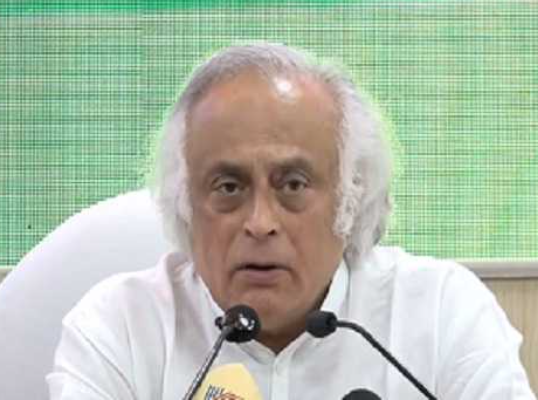The Hindenburg Report, which recently put a spotlight on the Securities and Exchange Board of India (SEBI) and its chief, has sparked widespread debate and controversy in the political and financial arenas of India. The report, which raises serious allegations of regulatory lapses and potential complicity in what the Congress party has termed the “Modani Megascam,” has once again brought into question the integrity of the country’s financial regulatory institutions. The Congress party has been vocal in its demand for a Joint Parliamentary Committee (JPC) probe into the alleged scam, intensifying its criticism of the ruling government. This article delves into the details of the Hindenburg Report, the Congress party’s stance, the implications for SEBI, and the broader impact on India’s financial regulatory landscape.
The Hindenburg Report: An Overview
The Hindenburg Report, an investigative document produced by the US-based short-selling firm Hindenburg Research, has created a storm in India’s financial markets. The report alleges that SEBI, under its current leadership, has failed in its duty to regulate the markets effectively, allowing for what it describes as a “Modani Megascam” to occur. The report suggests that there were significant lapses in oversight and regulatory action, which facilitated questionable financial practices by entities with close ties to the ruling establishment.
Hindenburg Research is known for its in-depth investigations and has a history of targeting companies it believes are engaged in fraudulent or unethical practices. The firm typically takes a short position on the companies it investigates, profiting from a decline in their stock prices after the publication of its reports. However, the allegations in the Hindenburg Report extend beyond corporate malfeasance to question the role of India’s top financial regulator. 
Allegations Against SEBI and Its Chief
The report’s most damning allegations are directed at SEBI’s current chief, suggesting that the regulator either turned a blind eye or was complicit in allowing certain corporate entities to engage in financial practices that undermined market integrity. The report points to a series of transactions and regulatory decisions (or the lack thereof) that it claims facilitated the concentration of wealth and power in the hands of a few, at the expense of the broader economy.
One of the key allegations is that SEBI failed to act on several red flags that were raised over the years concerning the financial dealings of companies linked to prominent industrialists who are perceived to have close ties to the current government. The report suggests that these companies were able to manipulate stock prices, engage in insider trading, and evade scrutiny through complex financial structures that should have been detected by the regulator.
Furthermore, the Hindenburg Report raises concerns about the transparency and accountability of SEBI’s leadership. It alleges that there have been conflicts of interest and instances where the regulator’s decisions have favored certain corporate entities over the interests of the market and small investors. These allegations have cast a shadow over the credibility of SEBI, which is tasked with maintaining the integrity of India’s financial markets.
Congress Party’s Response: Renewed Call for a JPC Probe
The Congress party, which has been a vocal critic of the ruling government’s economic policies, has seized upon the Hindenburg Report to renew its demand for a Joint Parliamentary Committee (JPC) probe into what it has termed the “Modani Megascam.” The term “Modani” is a portmanteau of Prime Minister Narendra Modi and Gautam Adani, a leading industrialist, suggesting a nexus between the government and certain corporate interests.
The Congress party’s leaders have argued that the allegations in the Hindenburg Report are too serious to be ignored and that only a JPC probe, with representatives from multiple political parties, can ensure a thorough and impartial investigation. They have accused the ruling government of shielding its allies in the corporate sector and undermining the independence of regulatory institutions like SEBI.
In a series of press conferences and public statements, senior Congress leaders have reiterated their demand for accountability. They argue that the Hindenburg Report’s findings, if proven true, represent a major scandal that goes to the heart of India’s economic governance. The party has also questioned the government’s silence on the issue, suggesting that it is indicative of a cover-up.
The Government’s Stance: A Dismissal of Allegations
The ruling Bharatiya Janata Party (BJP) and the government have largely dismissed the allegations raised in the Hindenburg Report and the Congress party’s subsequent demands for a JPC probe. Government spokespersons and BJP leaders have accused the Congress of engaging in political theatrics and attempting to undermine investor confidence in India’s markets. 
The government has pointed to the overall stability and growth of India’s economy as evidence that the financial system, including regulatory institutions like SEBI, is functioning effectively. They have argued that the Hindenburg Report is part of a broader agenda to discredit India’s economic success and that the Congress party is playing into this narrative for political gain.
Furthermore, the government has asserted that existing mechanisms within SEBI and other regulatory bodies are sufficient to address any legitimate concerns about market practices. They have expressed confidence in the SEBI chief and dismissed calls for his resignation, suggesting that the Congress party’s attacks are motivated by a desire to create instability ahead of upcoming elections.
Implications for SEBI and the Financial Markets
The controversy surrounding the Hindenburg Report and the subsequent political fallout have significant implications for SEBI and India’s financial markets. For SEBI, the report’s allegations threaten to erode public trust in its ability to regulate the markets impartially and effectively. If the perception takes hold that SEBI is compromised or subject to political influence, it could lead to a loss of confidence among domestic and international investors.
Moreover, the demand for a JPC probe, if it gains traction, could lead to prolonged scrutiny of SEBI’s actions and decisions. This could result in a more cautious approach by the regulator, as it seeks to avoid further controversy. However, such caution could also lead to delays in decision-making and a more conservative stance on regulatory issues, which could stifle innovation and growth in the financial markets.
For the broader financial markets, the controversy could lead to increased volatility, particularly if investors perceive that there is a lack of regulatory oversight. The allegations of corporate malfeasance and regulatory failure could lead to greater scrutiny of companies perceived to have close ties to the government, potentially affecting their stock prices and market valuations. 
The Broader Impact on India’s Economic and Political Landscape
The Hindenburg Report and the ensuing political controversy have also highlighted broader concerns about the concentration of economic power in India and the relationship between big business and politics. The Congress party has framed the issue as one of crony capitalism, where a select few benefit at the expense of the broader population. This narrative resonates with concerns about inequality and the perception that economic growth has not been equitably distributed.
The controversy also has the potential to impact the upcoming elections, as the Congress party seeks to capitalize on the allegations to challenge the BJP’s economic record. The demand for a JPC probe allows the Congress to position itself as a champion of transparency and accountability, contrasting itself with what it portrays as a government that is beholden to corporate interests.
For the ruling BJP, the challenge is to defuse the controversy without giving it more political mileage. The government’s strategy has been to dismiss the allegations as baseless and politically motivated, but the effectiveness of this approach will depend on how the issue resonates with the public and whether it gains traction in the media and political discourse.
Hindenburg Conclusion
The Hindenburg Report on SEBI and the subsequent demand by the Congress party for a JPC probe into the “Modani Megascam” have brought to the forefront critical issues about the integrity of India’s financial regulatory institutions and the relationship between business and politics. While the government has sought to dismiss the allegations, the controversy has the potential to impact public trust in regulatory bodies like SEBI and to shape the political narrative in the lead-up to the next elections.
The demand for a JPC probe reflects broader concerns about transparency, accountability, and the need to ensure that India’s economic growth benefits all segments of society. As the debate continues, the outcome of this controversy will have significant implications for India’s financial markets, its regulatory framework, and its political landscape. Whether or not a JPC probe is ultimately convened, the issues raised by the Hindenburg Report are likely to remain a focal point of political and economic discourse in India for the foreseeable future. ALSO READ:-Police Associate Held in Rape, Murder of Doctor in Kolkata: A Shocking Crime That Shakes the City 2024





